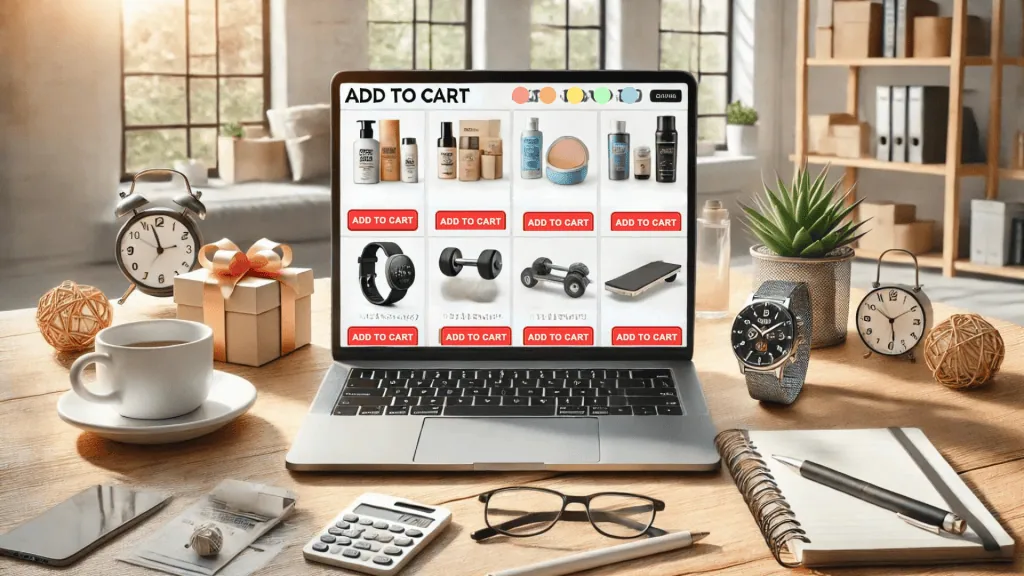The Impact Of Mobile Marketing On Modern Business Strategies
Reading time: 8 minutes
Table of Contents
- Increased Accessibility
- Enhanced Personalization
- Greater Engagement Through Mobile Channels
- Seamless Consumer Experience
- Measurable Impact of Mobile Marketing
- The Role of Social Media in Mobile Marketing
- Marketing Data Analysts and the Future of Mobile Marketing
- The Importance of Marketing Analytics Software for Mobile Marketing Success
- Final Thoughts
Mobile marketing has revolutionized how businesses interact with consumers. With the majority of the global population now using smartphones, the rise of mobile marketing offers a direct and personalized pathway to communicate with potential customers. This approach has become increasingly important for small businesses and enterprises looking to leverage the benefits of digital marketing for small businesses. Let’s explore the key impacts mobile marketing has on business strategies and how it is shaping the future of marketing for small enterprises.

Increased Accessibility
Mobile marketing reaches consumers directly on their devices, making information accessible at virtually any time and place. With smartphones now a constant companion, consumers can access content, offers, and advertisements in real-time. This increased accessibility has fundamentally changed consumer behavior, leading to a rise in mobile commerce and more people turning to their smartphones for shopping, information, and entertainment.
For small businesses, leveraging marketing analytics software is crucial to understand how consumers interact with their mobile content. Mobile usage data allows businesses to track trends, enabling them to make more informed marketing decisions. This accessibility also helps marketing data analysts determine the best times and channels for reaching their audience, which significantly increases engagement rates.

Enhanced Personalization
Mobile devices provide marketers with a wealth of data about user behavior, preferences, and geographic locations. This treasure trove of information allows for highly targeted and personalized marketing campaigns that speak directly to the consumer’s needs. For example, businesses can send exclusive offers, promotions, or content that is curated based on previous consumer interactions and their current location. This level of personalization is one of the most significant benefits of digital marketing for small businesses because it helps businesses stand out in a crowded market.
Content personalization, driven by content marketing analytics, enhances the customer experience and boosts the chances of conversion. By utilizing tools like HubSpot software, businesses can automate this process, ensuring that every interaction is personalized without the need for constant manual adjustments.
Greater Engagement Through Mobile Channels
Mobile marketing tools such as mobile apps, SMS marketing, and social media platforms allow for higher engagement rates compared to traditional marketing channels. One key reason for this is the immediacy of mobile communications. Push notifications, for example, can prompt immediate responses from users. In particular, social media-driven strategies like influencer marketing have proven especially effective for ecommerce brands, as discussed in our guide to the impact of influencer marketing on ecommerce.
Influencer marketing KPIs (key performance indicators) also show that mobile platforms like Instagram and TikTok are now the dominant spaces for influencer-driven campaigns. For small businesses, partnering with influencers or utilizing user-generated content on these platforms can significantly increase engagement and reach. Additionally, HubSpot integrations help businesses streamline their marketing efforts across various mobile channels, from social media to email marketing, ensuring that the customer journey is consistent and engaging.

Seamless Consumer Experience
One of the biggest advantages of mobile marketing is its ability to support a seamless consumer experience, from discovery to purchase. Mobile-optimized websites and apps provide a streamlined interface that simplifies the purchasing process. Fast loading times, intuitive navigation, and responsive design all contribute to a better user experience, which ultimately drives higher conversion rates.
Incorporating content marketing analytics can help businesses monitor how users are interacting with their mobile platforms, pinpointing areas of improvement to enhance user experience. Similarly, marketing analytics software can provide insights into drop-off points in the customer journey, helping businesses refine their mobile marketing strategies to minimize friction and improve outcomes.
Small businesses can use tools like HubSpot to manage and automate customer touchpoints, ensuring a smooth and uninterrupted user journey across multiple devices. From sending out promotional emails to managing follow-ups, these tools are essential for creating a frictionless consumer experience.

Measurable Impact of Mobile Marketing
One of the most significant advantages of mobile marketing is the ability to measure its impact with precision. Mobile marketing campaigns offer a wealth of data that can be tracked in real-time, including metrics such as engagement rates, click-through rates, and conversion rates. These metrics provide businesses with the ability to adjust their strategies dynamically, making it easier to optimize their campaigns based on what resonates with their audience.
Small businesses can take advantage of this measurable impact by using marketing analytics software to assess the effectiveness of their campaigns. The insights gained from these analytics allow businesses to make data-driven decisions, thereby maximizing their return on investment (ROI). HubSpot software offers powerful tracking and reporting features, making it easier to see how campaigns perform across various mobile channels.

The Role of Social Media in Mobile Marketing
Social media has become one of the most influential platforms for mobile marketing, particularly for small businesses. Platforms like Facebook, Instagram, and Twitter allow businesses to connect directly with their audience, sharing content, promotions, and updates in real-time. But beyond just communication, social media has transformed how businesses approach marketing.
Explain how social media has impacted marketing for small business: Social media has made it easier for small businesses to compete with larger corporations by offering affordable advertising options and direct access to consumers. With targeted ads and the ability to build communities around a brand, small businesses can leverage social media to increase their visibility and drive engagement.
Social media also supports content-driven strategies, where content marketing analytics can provide deeper insights into what types of content perform best on these platforms. By understanding consumer preferences, businesses can create more effective content that resonates with their audience, increasing the chances of driving conversions. Tools like HubSpot can integrate social media analytics with other marketing efforts, allowing for a holistic view of a campaign’s performance.
Marketing Data Analysts and the Future of Mobile Marketing
As mobile marketing becomes more sophisticated, the role of marketing data analysts is becoming increasingly crucial. Analysts help businesses interpret complex data sets, providing actionable insights that guide decision-making. With mobile marketing generating vast amounts of data every second, businesses need analysts to make sense of this information, ensuring that marketing strategies are data-driven and effective.
In the future, the demand for professionals who specialize in mobile marketing analytics will continue to grow. Small businesses, in particular, will benefit from hiring data analysts or partnering with a marketing analytics agency that can help them navigate the complexities of mobile marketing.
The Importance of Marketing Analytics Software for Mobile Marketing Success
Utilizing the right tools is essential for optimizing mobile marketing strategies. Marketing analytics software offers small businesses the ability to track, measure, and optimize their marketing efforts across mobile platforms. These tools provide in-depth insights into user behavior, conversion rates, and overall campaign performance.
HubSpot software, in particular, offers small businesses the ability to automate and track their marketing campaigns with ease. Whether it’s tracking customer interactions across mobile devices or monitoring influencer campaign performance, having the right software in place ensures that businesses can stay ahead of the competition.
Customer feedback and reviews also play a vital role in shaping mobile marketing strategies. In fact, the impact of reviews on sales has become a key consideration for businesses aiming to boost conversions and build trust across mobile channels.
Final Thoughts
Mobile marketing is no longer optional for businesses—it is a necessity. From increased accessibility and personalization to seamless customer experiences and measurable impact, mobile marketing provides a multitude of benefits of digital marketing for small businesses. By integrating social media, influencer marketing, and analytics into their strategies, small businesses can leverage mobile platforms to grow their brands, engage with customers, and drive sales.
Investing in the right tools, such as marketing analytics software and working with a marketing analytics agency, can help small businesses maximize the potential of mobile marketing. Moreover, the role of marketing data analysts will continue to expand as businesses seek to interpret complex data and make more informed decisions.
Ultimately, the future of mobile marketing will be driven by data, personalization, and technology, all of which empower small businesses to thrive in an increasingly digital landscape. Discover the innovative digital marketing solutions that Owltek Solutions offers to help elevate your brand and drive success!

**This post contains affiliate links, meaning I may earn a small commission if you make a purchase through one of them. Rest assured, I only recommend products I truly love. Your support helps keep my creative business thriving — thank you!**
